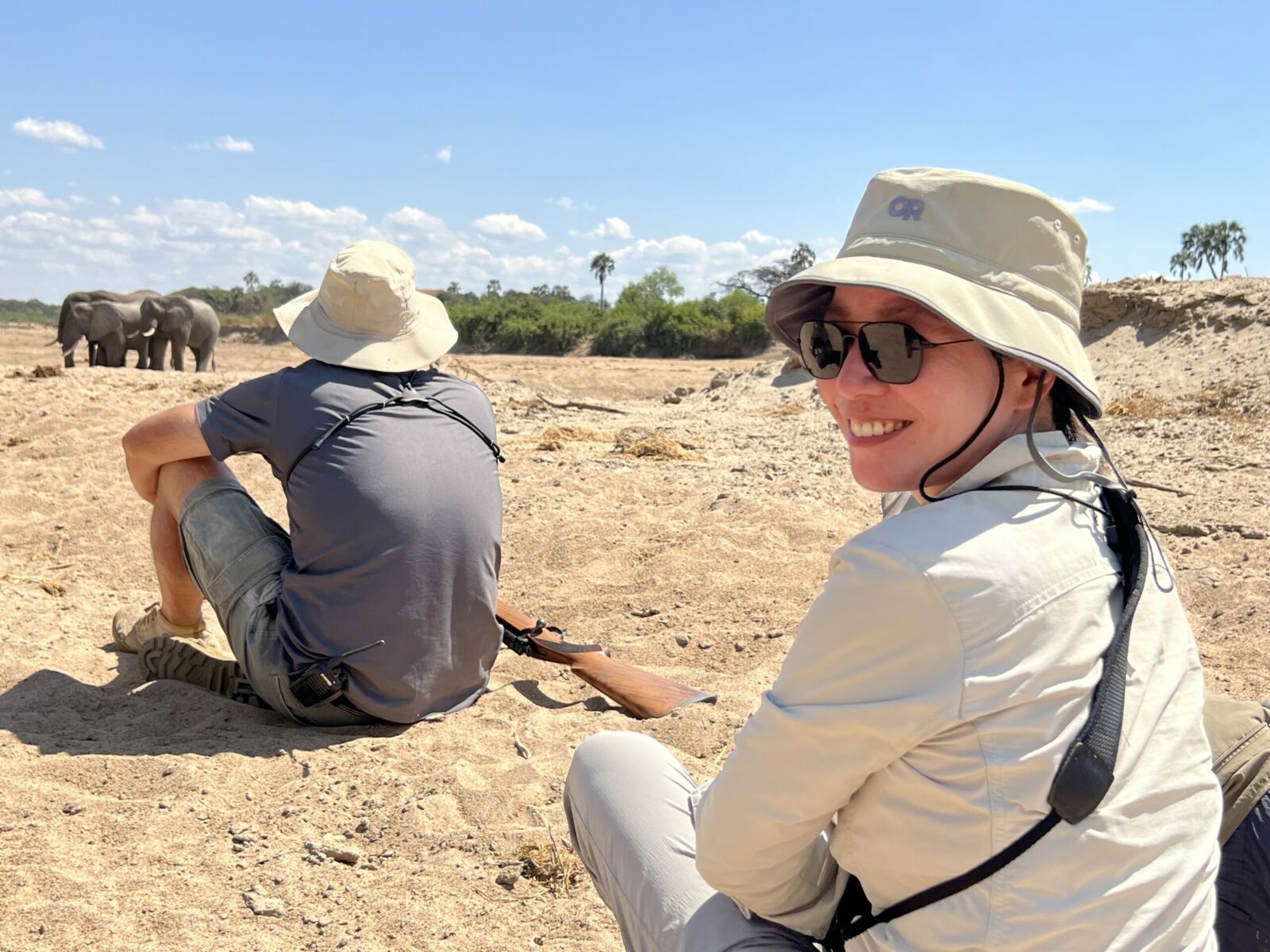“If you want to see the bush, get in a vehicle. If you want to understand it, get out on foot.”
– Andrew “Moli” Molinari
Guide/Owner of Kichaka Expeditions
Kichaka Expeditions is an incredible company that offers three, five, and seven-night safaris in one of Tanzania’s most remote destinations — Ruaha National Park. Guests can choose between two permanent camps (Kichaka Zumbua and Kichaka Kidogo) or, for the more adventurous traveler, Kichaka Wild, a seven-night fly camp & walking safari.
Two Travel Beyond clients recently reflected on their week at Kichaka, walking through Ruaha and experiencing the bush in the most unforgettable and personal fashion.
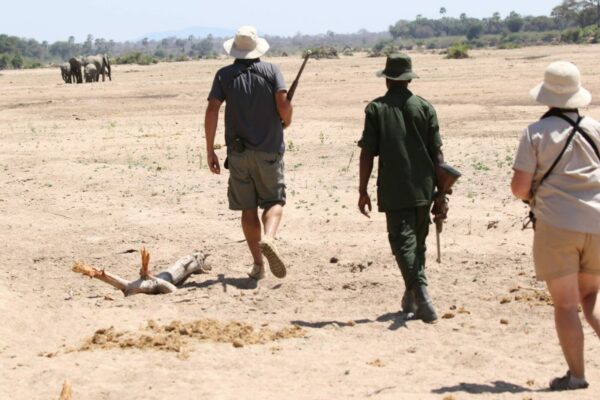
“Walking amid big game makes you feel connected to the land in the most humbling yet awe-inspiring way—you’re just another animal, like early humans 50,000 years ago. The walking safari experience at Kichaka, in southern Tanzania’s Ruaha National Park, is like none other. These guided excursions are more than the simple walks offered at many camps. Here, you will encounter big game on foot, and even attempt to approach cape buffalo and elephant. You’ll leave the confines of a boxy vehicle where engine noise and the smell of fuel mask your humanness and eliminate the distance at which our modern lives keep the natural world. You’ll walk the paths—some barely perceptible—created by animals, and understand how unhabituated creatures comprehend your bipedalism.
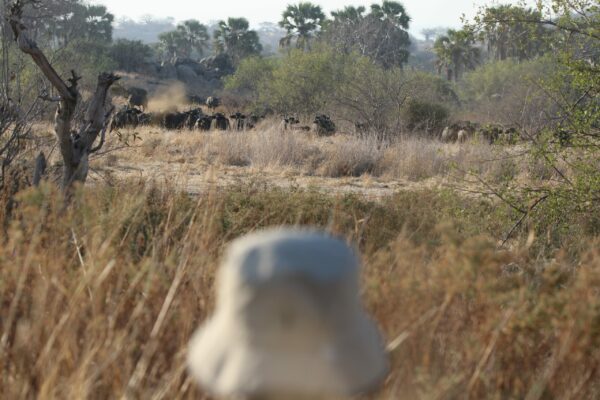
We truly entered the Umwelt, or mind space, of the animals when Moli had us all scurrying behind him in a squatting position to avoid startling a herd of cape buffalo we’d found. In order to approach, he then dropped to all fours and zigzagged closer and closer like a lion—because buffalo are actually curious about lions and move toward them, whereas bipedal humans cause them to run off in a cloud of dust. Who knew? Moli, for one.
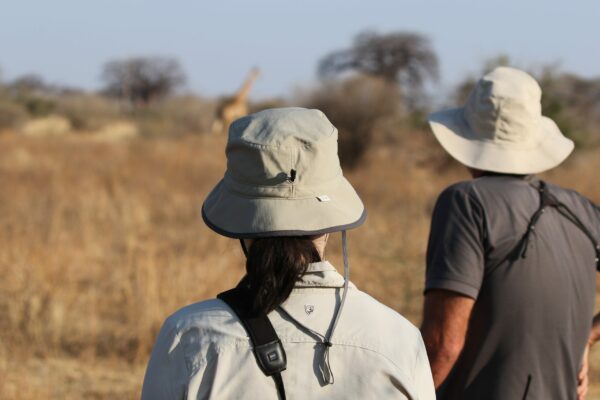
He does a formidable job as ambassador to wildlife, regaling guests with stories about how they think, how their world works, and how they’ve evolved. Ever wonder why acacia trees are covered in thorns? Why giraffes have 18-inch tongues? Or why the latter feed on the former in quick spells, moving from tree to tree in what appears to be the pickiest of habits? Hint: the acacias release tannins that make their leaves bitter—and actually communicate the threat to nearby acacias as well, leaving the giraffe mere minutes to make the rounds before the bitterness sets in.
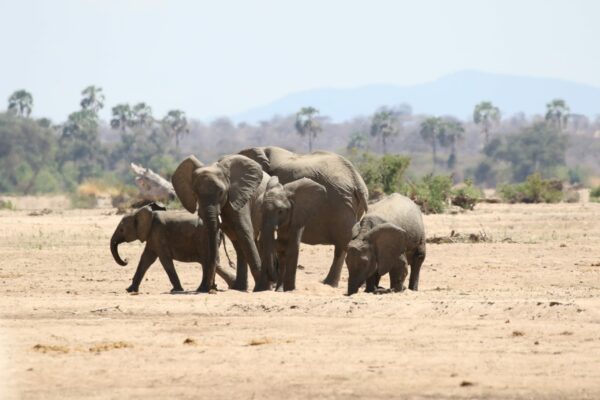
The highlight of our week of walking came on the final morning, when we glimpsed elephants in bush so thick that it impeded our ability to get closer. Thankfully, Moli anticipated where they would head later in the day, and after what felt like hours of pleasant meandering, we approached the curved bank of a dry river . . . and suddenly got the hand signal from Moli to crouch down low and keep quiet. As we rounded the bend, one elephant came into view, then another, and ultimately ten males, who were happily digging wells in the dry riverbed to quench their thirst! We spent a good half hour simply sitting downwind, in the soft sand, to watch them, not 20 meters (65 feet) away. Periodically, Moli would shake his ash bag to test the wind and ensure we were still in the best position. Once the wind shifted, the elephants caught our scent and off they ran, giving us the chance to check out their wells filled with crystal-clear fresh water.
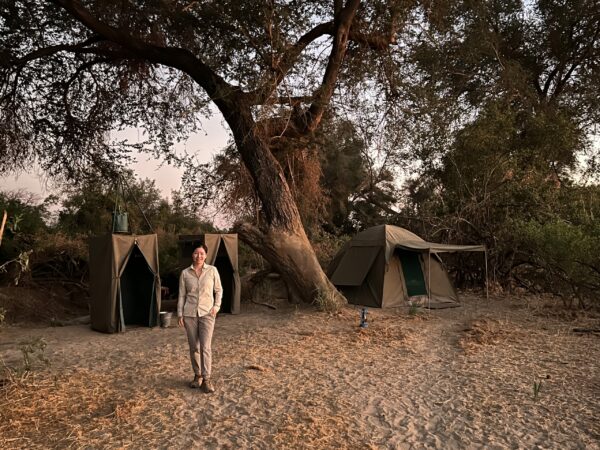
Back at fly camp, the accommodations are basic tents with cots, along with private bucket showers and toilets (nothing beats sitting on the can in the pitch dark with a full-on view of the Milky Way!). It’s a comfortable set-up even for those of us who typically prefer proper beds. But far grander than any posh lodgings or gourmet cuisine is the chance to feel like an animal among animals, rooted to the earth and aware of all your senses- from the fresh scents at sunrise to the sunbaked grasses at midday, the feel of the most refreshing breeze at the top of a rise and the delicious shade offered by a tamarind tree, the sensation of sinking into deep sandy riverbed with each step, or having twigs snap so loudly underfoot that you feel clumsier than a herd of elephants. (Moli can explain how they manage to walk so silently, too.)
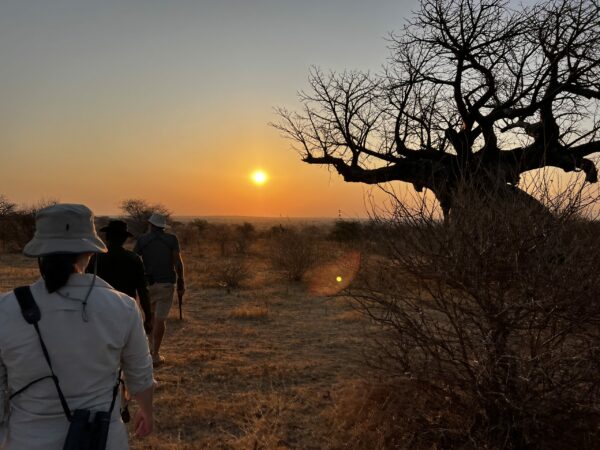
The ultimate luxury afforded by a stay at Kichaka is the rare opportunity to observe majestic animals without the barrier of a vehicle or structure in the way; it’s the privilege of being the only human animals for miles around.”
